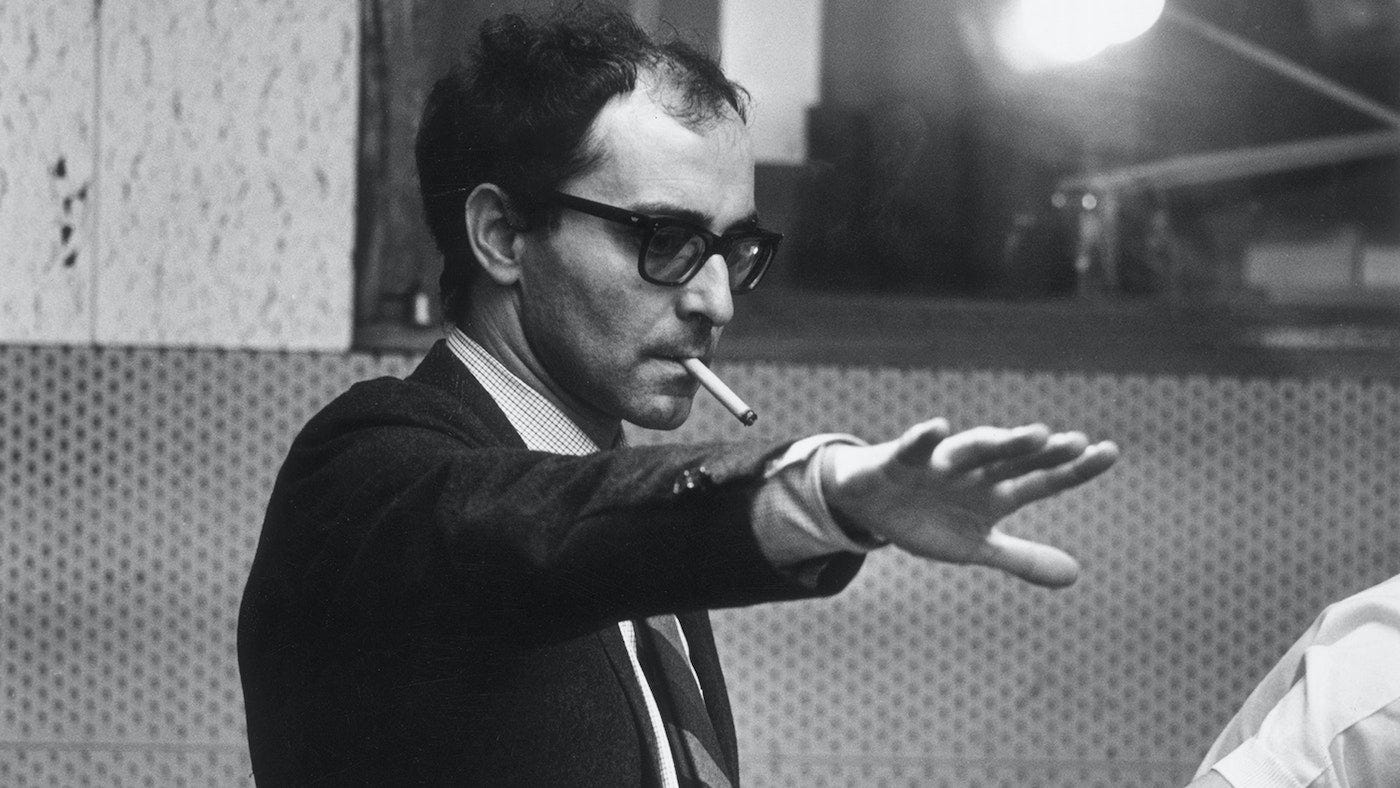95 Theses on Cool, parts 0-17
From Miles Davis to René Girard via Red Scare podcast
The term 'cool' originally came from the world of jazz. Players were encouraged to still the emotions so they could find the groove. There’s a Miles Davis compilation album, Birth of the Cool (1957), that solidified jazz as a marker of sophistication and cool as the word that summed it up.
Norman Mailer, in his essay The White Negro (also 1957), thought that cool was an existential reaction to "the psychic havoc of the concentration camps and the atom bomb upon the unconscious mind of almost everyone alive." With horror in the past and dread in the future, cool is the state of Zen you need to live in this moment.
The French have a phrase, sang froid (literally, cold blood), that refers to a similar kind of enlightened serenity.1
Further back in history, Baldassare Castiglione in The Book of the Courtier (1528) uses the word Sprezzatura, which sounds a lot like a definition of cool: "a certain nonchalance, so as to conceal all art and make whatever one does or says appear to be without effort and almost without any thought about it."
There are two basic types of cool: timeless cool and zeitgeist-chasing cool. The first is a lineage of elegant people, photographed in black and white, showing amused detachment, rebelliousness, insouciance, and melancholy. Bowie,2 Bukowski, Baldwin, Dylan, Godard, Malcolm X ... there is a nice blog, Nitch, that catalogues and calcifies this type of cool.
I sometimes think that this kind of cool is a prison3 because it seems to refute exuberance. If you can't be exuberant for fear of being cringeworthy there is no point in being cool. Exuberance, when life escapes its boundaries, is joyful.4
The second type is the zeitgeist-surfing cool that signals that you are one step ahead of the herd. This is cool as fad and is perhaps best seen in haircut trends, which become uncool very quickly. It’s exhausting and mainly associated with young people who have the energy to keep up with such things.
Until recently, it hadn’t occurred to me that the word cool could become uncool. However, a young person told me that her generation don't use the word cool anymore, except as a synonym for 'okay'. I asked her what she used to mean the best thing going? She said ‘sick’ although younger people than her (she is 27) use 'lit' or 'fire'. Cool, it seems, is now too cold.
The coolest shop in Glasgow is RIPE, in Barras Market, where you can buy the latest fashion magazines. I asked Linda McIntosh, who runs RIPE, what she thought was the coolest magazine in the shop. She just laughed, as if it was a ludicrous question. "It depends what you're into." She was of the view that cool is a relative concept that is different for everyone.
Or maybe she laughed because to have to ask what is cool is uncool. Cool has to be effortless. You can't try to be cool.
Browsing through the latest hipster mags is illuminating. The models are unconventional, the photography is raw, and the articles are all about social justice. One magazine stood out against this trend: Sex Mag had a picture of Anna Khachiyan the co-host of Red Scare podcast on the cover.
Red Scare, if you don't know, is a rambling podcast from two Slavic women living in New York. They giggle, say 'like' a lot, and discuss post-liberal politics. The tone is one of irony, exasperation, and intellectual curiosity. If, as The Cut claim, there is vibe shift away from happy, smiley, pastel-shaded millennials then Red Scare is no small part of that. The hosts, Dasha and Anna, met on Twitter and are at their best when delivering sly, tweet-length summations of ideas. For listeners, they needn't say much except reference cultural totems, names like Mark Fisher, Adam Curtis, Slavoj Zizek, Christopher Lasch, Camille Paglia, Nassim Taleb etc. These names are like hyperlinks in their conversations: portals to big ideas from thinkers who are sceptical of the modern age. These references create a shared aesthetic that is erudite, witty, dangerous, psychoanalytic, post-Marxist, and, most importantly, detached from contemporary bourgeois morality. They are cool.
If you want to know who you find cool, take note of whose recommendations you follow without question. If a person recommends you watch a certain film or read a book, and you want to do so immediately, then that person is cool to you. Moreover, you might find that you enjoy consuming the media more than you would have done otherwise.5
For example, I recently read The Novelist by Jordan Castro and “HR Managers of the Human Soul” by Justin EH Smith. Why? Because they had both been recommended by Anna Khachiyan and she is cool and so they are cool by association.
The Red Scare podcast has lately been associated with Dimes Square, a New York cultural scene that embodies the “fear, desire, nihilism and naïvete of American national fantasy” and “where you went if you wanted to see models, podcasters, skaters, artists.”
The Dimes Square scene has allegedly been funded by Peter Thiel, the tech billionaire who helped create PayPal and who was an early investor in Facebook. He presumably funds it based on Andrew Breitbart’s idea that politics is downstream from culture. If you can get people to think a scene is cool then the values will spread.
Peter Thiel's mentor was René Girard, a French philosopher best known for his idea of mimetic desire. In Girard’s view, everything we desire, everything we think is cool, is learned through copying someone else. As Cynthia Haven, writes: “We live derivative lives. We envy and imitate others obsessively, unendingly, often ridiculously. ‘All desire is a desire for being,’ [Girard] said, and the being we long for becomes wrapped up in a person.” That person, whether we like it or not, is our avatar of cool.
This collection of thoughts could have been written as an article, but that would have been too conventional. Fragments are ambiguous, fragments are cool.6
The coolest drugs are opiates. I’ve only had morphine once, after an appendectomy, but vividly remember that feeling of serenity, high above the petty concerns of normies.
One of the only interactions Nick Currie, AKA Momus, got from his hero David Bowie was when he covered Bowie’s song Where Are We Now? in 2013 and got the response “That’s so cool!” In his autobiography, Momus writes: "It was one of the highlights of my life, because cool is exactly what he’d been in my eyes." Momus himself is one of the coolest people I know because he is uncompromising, sophisticated and exuberant.
The coolest person I know has a very austere aesthetic, all Helvetica bold and black and white photography. I don’t think he is a prisoner of minimalism, just parsimonious in what he allows into his aesthetic world view. He is also very exuberant in the right circumstances.
"Neil, you are so uncool." The man who said this to me was called Felix, which is the kind of name you get if your parents want you to be cool. We had been at a rock club in Hong Kong watching a band play Bon Jovi covers. When he made this comment I was being exuberant, saying what I felt to be true no matter how embarrassing it made me look.
Philip K Dick's Time out of Joint (1959) is a novel about a man living in a simulacrum of fifties America who is haunted by glimpses of bare reality: "Hollow outward form instead of substance; the sun not actually shining, the day not actually warm at all but cold, grey and quietly raining, raining, the god-awful ash filtering down on everything. No grass except charred stumps, broken off." This bare reality, as Mark Fisher recognised, is what lies beneath our psychological projections. We believe that something is good because it is infused with qualities others have given it.
The original title for this piece was "Yo yo coolio," a random phrase that popped into my head when thinking about cool. Coincidentally, this week the rapper Coolio died. I love the lyrics to Gangsta's Paradise, which he apparently freestyled. According to Wikipedia, 'He would later claim that the song ultimately came from a source outside himself, saying, "'Gangsta’s Paradise' wanted to be born; it wanted to come to life, and it chose me as the vessel."'










Oh Felix, being true is the coolest (I’m aware how not cool I am using ‘coolest’).
There is so uncool you become cool again and I think he missed this:)
This was cool. Being a cool guy myself I was able to recognise that. I also wrote a piece on cool a while back but I won’t link to it here as doing so would be uncool.
Coolness, like conscience, comes at a cost.